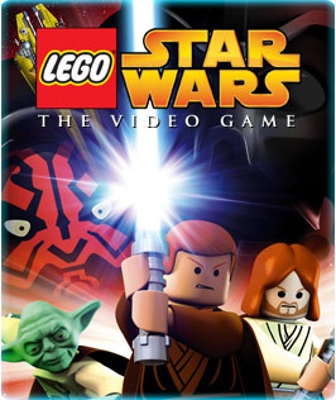Pro-Fun
The most recent selection for Gamespot's User Soapbox was a blog written by TechnologoDoom (referred to as TD for remainder of blog) focusing on a range of reasons why "fun" is not a word that should be used when describing or reviewing video games. TD does claim that there is nothing inherently wrong with the word fun, and that there are situations in which its use is acceptable or even desired. However, discussion of video games is not one of those situations.
TD does make a range of good points throughout his argument, but I feel that he missed some key points of "fun" which has led me to write a friendly rebuttal to his argument. I do not see the word "fun" as threatening or as dangerous to video gaming as TD makes it appear, and "fun" is still a viable word to be used in the discussion of video games.

[Random happy kid I found when I Googled "Happy Kid." Clowns are creepy]
Here's My Rebuttal
1. What is the point of video games if not to create "fun"?
Dictionary.com defines "fun" as "1. Something that provides mirth or amusement 2. Enjoyment or playfulness." Isn't that the point of video games? I know that's why I play them. I play games as a break from the real world. It's a time to get away, and a time to do things that I never could truly do and get away with, such as conqueor an entire town, going on a murderous rampage, or shooting down two helicopters with a single RPG. Video game developers should be trying to make games that are "fun" first, and everything else should great about the game should follow in suit. But what's the point of making a great, beautiful, amazing game if people aren't going to have fun playing it?
Take Eddie Izzard's commentary on British cinema. Izzard refers to it by describing that there's a lot of fine acting and it's beautiful to watch, but the action is just kind of *bleh*. He refers to it by saying that "you can't even eat popcorn to it." That's what a video game without "fun" would be like. Yes it's beautiful, but why would I want to play it?
2. "Fun" can mean more than just "Fun"
Like anyword in the English language, when taken out of context, "fun" loses a lot of the meaning that the writer or speaker may have intended for the word to have. By using tools such as inflection and other contextual tools surrounding the word, "fun" can become more than just its Dictionary.com definition. There's a difference between someone saying, "That game was fun!" and another person saying, "I mean... That game was fun.*Hint of uncertainty in voice*" Taken out of the context of the rest of the discussion, "fun" can become an overly simplistic and misleading term. But, when viewed as a piece of the whole, "fun" can become, or lead to, an adequate description of a gaming experience.
Further, the use of the word fun does not also imply happiness or complacency. Just because one describes a game as fun does not also imply that there is nothing about the game that they would wish to change. In the above quote, "I mean... That game was fun," there are obvious problems inherently implied by the use of the word fun. The speaker would undoubtedly continue on to list why the game was only fun, but also had various problems. So, fun can be used not only to praise a game, but also to highlight it's shortcomings as well.
3. "Fun" is a universal
Worldwide, everyone is able to understand what "fun" is. Is it simplistic? Yes. Is it reductionist? Yes. But, "fun" is a concept that everyone in the world is able to grasp and understand. There's undoubtedly a difference between saying a game was "fun" and a game was "amusing" or "enjoyable," but fun is the easier of those terms to understand on a personal level. And isn't that what we're looking for when you're reading someone else's review? Or listening to them describe a game? Reviews are based on personal perceptions, and "fun" may often be the best term to describe a gaming experience. It could be the story that makes a game "fun" for me, while another individual had "fun" due to innovative gameplay. But, at the end of the day, we would both agree that the game was "fun."
Agreeing to Disagree
The point of this rebuttal was not to poke holes in TD's argument, nor was it to necessarily fully disagree with him. I agree that solely using the word "fun" to describe a game, does a disservice not only to the game, but to the gaming community as well. I urge reviewers and players to delve deeper, to be able to describe the various innovative and beautiful technical aspects of each and every single game they play. But while doing so, I further urge you to have some "fun." For me, that's what video games are all about: Having a little fun. Video games are meant to be fun. That's why developers make them. So, try to go deeper in your thinking than just "fun." Try to define what makes that game fun for you, and then go even further. But don't get so wrapped up in the technicalities of a game that you foget to have fun while playing it. If you're not having fun while playing you're video games, then what's the point?



















Log in to comment